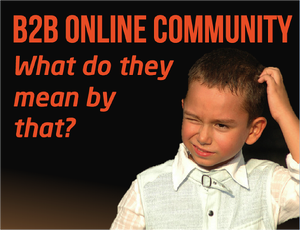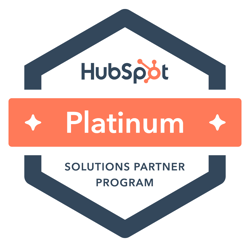 Many event companies are just waking up to the fact that online communities could become a huge part of their event marketing strategy, so let’s start by clarifying exactly what we mean.
Many event companies are just waking up to the fact that online communities could become a huge part of their event marketing strategy, so let’s start by clarifying exactly what we mean.
An online community, put simply, is a virtual community where members or users primarily use the internet to share information and interact with one another. In the event industry, an online community is formed around a single event, or if the topics are related, a group of events. The information shared would relate to the topic of the event(s), and participants in these interactions would have an interest in the sector. In its purest form, an online community is inbound marketing in action: the process of attracting leads to your organisation, rather than using outdated, interruptive methods to gain new business.
Where could this community exist?
Don’t overcomplicate things – an online community can be formed by a blog, a publication or on social media – it’s about finding the platform that your prospects are most active on, and truly knowing your target market. Here are just some of the places your community could prosper:
A B2B stalwart. It might seem an obvious place to start your community, but actually starting and driving your own LinkedIn group is a serious undertaking, and one which shows great commitment to the industry. Expectations will be high, but then so are the rewards. If you’re not ready to start your own, simply joining and contributing to a group or several groups will get things in motion.
No longer the domain of B2C businesses, increasingly B2B organisations are sharing content and accumulating Likes. Facebook offers a chance to share visual content. For conference companies, this is great, as it means you get to show off the fun side of your events as well as sharing more serious industry content.
Real time interactions with your most influential, engaged prospects. If you choose to make this platform yours, the key is frequency, relevance, and delighting your customers – this is where you’ll find the most vocal participants of your community, so get them on board.
Newsletters
Some event companies find huge success in sending regular newsletters – not email blasts. Crucially, these communications contain actual news! Industry updates, your own content, whatever you feel adds value to your audience without simply reminding them that you have an event coming up. Of course, mention this when the time is right but don’t let it be the only thing you talk about. It’s boring, feels like a hard sell and is ultimately ineffective.
Slideshare
This might seem like a big commitment as Slideshare content is typically quite lengthy, detailed, and only the high quality stuff gets shared. However, as an event company, you’re in the very fortunate position to have a wealth of content to repurpose, post in its original form, or in some way reconfigure. Post-show reports, presentations in full, and ebooks you develop around your industry knowledge will tap into your prospects’ pain points, and cement your status as an industry leader.
Blog
Whether it’s your own or someone else’s, publishing regular content on a blog is invaluable. It gets you noticed, will begin to get a following, and gives you something interesting to talk about on social media. If you don’t already have a blog, you really are missing a trick. We’ll cover this in more detail later on but the results of starting and maintaining a blog are startling, and the possibilities for generating new leads are endless.
Industry publication
Being published in an industry publication will lend a serious amount of credibility to your event company and encourage untapped prospects to find out more about your events. Getting published regularly is what you should aim for here. If your event company or CEO’s name keeps cropping up in relevant publications, your prospects will notice, you’ll gain respect, and you’ll be well on your way to becoming a thought leader or influencer.
Events
The event itself is where your community comes to life, and is an opportunity to show your prospects that you engaged, you listened and you put what you learned into practice. Consistency with how your organisation has been presented in other forums is crucial.
Easier than you expected, isn’t it?
So now you know what we mean when we refer to an online community, and no doubt you’re pleasantly surprised by the simplicity of these options. The ultimate approach here would be tackling all of these elements, with a consistent tone, style and brand-building content. But don’t be unnerved, this can be done in stages and your community will grow organically as well as from your efforts to drive it.
This is the first chapter of the ebook ‘Realising ROI from your B2B Online Community’. Download your complimentary copy now.
Image Credit: San_Drino







Do you have any comments?